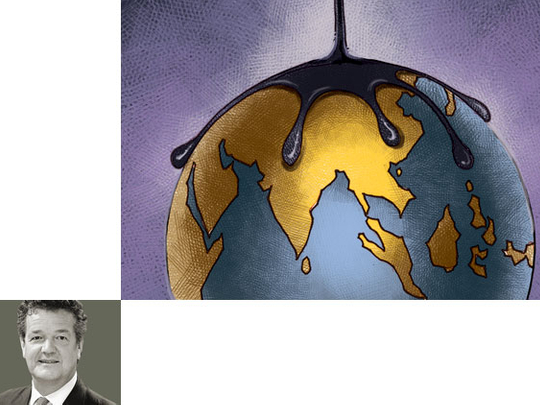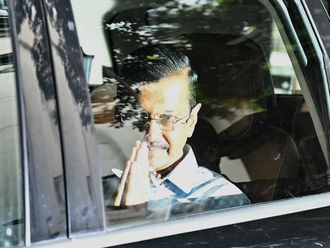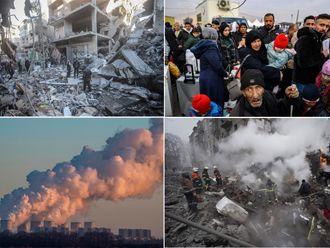
The UAE is one of several Gulf nations using its oil wealth to find new ways to build a position of substantial influence in the world. For many years, the ambitions of the Gulf Cooperation Council (GCC) nations were directed internally as they struggled with the mammoth task of building the infrastructure and social systems that new nations required.
The UAE and its GCC partners occasionally took positions on Arab issues, but they were overwhelmingly focused on the vital tasks of building their own nations, like planning an education system, putting in modern infrastructure that businesses needed, and implementing clear laws that allow individuals to have confidence to invest.
But now they are looking further afield. Two important example of GCC activity are the UAE supporting Nato in Afghanistan and Libya, and Qatar and Saudi Arabia playing an active role in backing the Syrian opposition.
But the GCC states’ most effective influence will be how they chose to sell their hydrocarbons. The world is very thirsty for oil, even if it is a limited resource which will run out in time. Hydrocarbons like oil and gas are the only source of fuel that the vast majority of economic processes can run on for the moment, even if nuclear power becomes an base-load supplier for nation girds; and solar and other renewables are useful at a local or domestic level.
Three challenges
And the global challenge is huge. The World Energy Council points out that the world needs a resilient and flexible energy system in order to rise to the three challenges of:
1. Providing 7 billion people (9 billion in 2030) with the secure energy needed to fuel economic development. This means huge investments, totalling 1.4 per cent of global GDP per year by 2030.
2. Protecting our climate by reducing global CO2 emissions by a factor of four by 2050, to preserving water and air quality.
3. Promoting social equity and universal access to energy, at a time when two billion people in the world still do not benefit from modern energy..
Despite their lip service to the two more aspirational aims, it is the first challenge that is keeping government planners in capitals all around the world awake at nights. No country can afford to run out of power. All its businesses demand 24-hour electricity to operate effectively, and people around the world are becoming used to permanent access to power and clean water (which needs power).
The two giants, India and China do not have enough hydrocarbons in their own territories to sustain their huge ambitions, and their bureaucrats, as well as from other Asian economies like Japan and Korea, have fanned out across the globe to find new and secure supplies of oil and gas. Their emissaries haunt the offices of the Gulf governments and oil corporations to find secure contracts that will give them the energy that their nations desperately need.
But there is a strategic mismatch, as the Asian powers have largely failed to find common ground with the Gulf states beyond the simple purchase of oil. These deeply strategic contracts have not converted into strategic relationships which are recognised as such by both sides.
Exception
The Gulf nations are still emotionally focused on their own development plans, and regard these as the dominant priority. The Asian states have largely missed this and chose to remain focused on their own issues in Asia, or the global economy.
The exception that proves the rule might be the case of Korea and the UAE, where Korea’s purchase of oil has been complimented by its supply of the UAE’s nuclear power station. And in addition, Korea’s own focus on building a green growth matches the UAE’s search build itself a place in the future energy sphere.
The UAE is now a board member of the International Atomic Energy Agency (IAEA), and hosts the International Renewable Energy Agency (Irena). It also hosts the World Future Energy Summit annually in Abu Dhabi and Dubai has just hosted the UN-based World Energy Forum.
The UAE government has taken the time and effort to create an emerging position of influence in thinking about how the world can best handle the inevitable energy crunch that a world of nine billion people must trigger. In turn this means that countries looking to form strategic alliance with the UAE should recognise this is a priority for the nation, which runs alongside its regional commitments and its presence in the world’s economic alliances working for an open and stable global economy.



_resources1_16a45059ca3_small.jpg)






